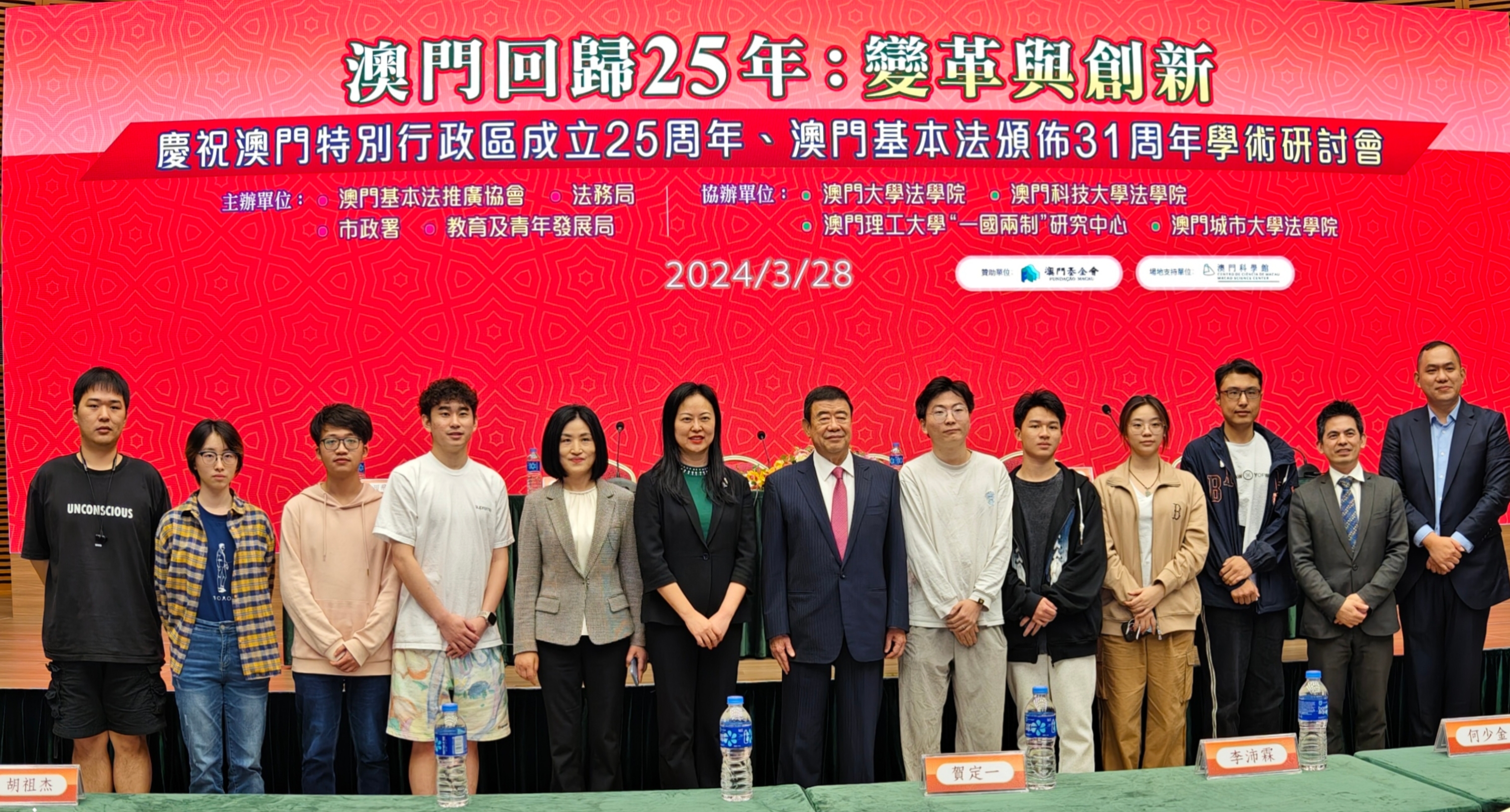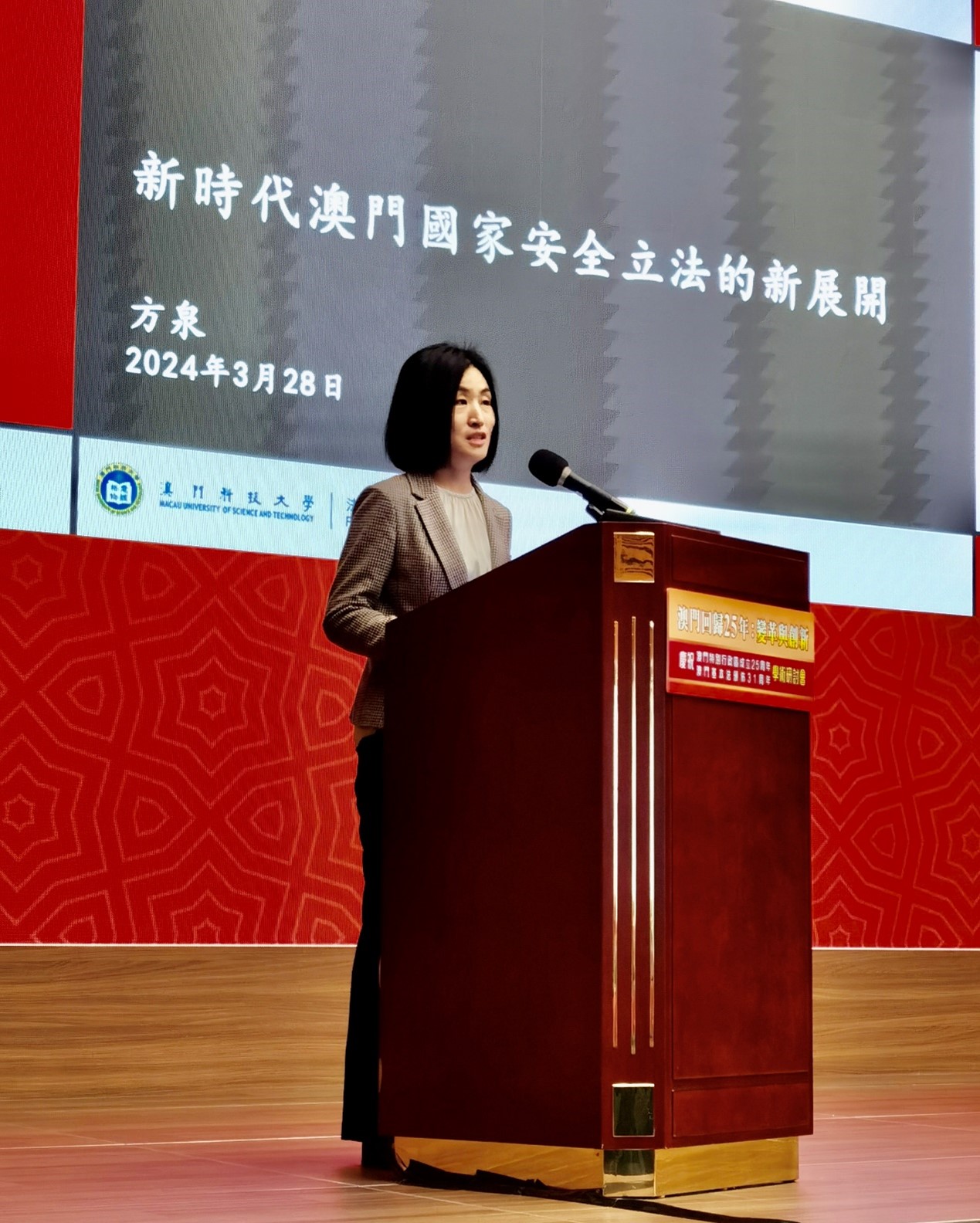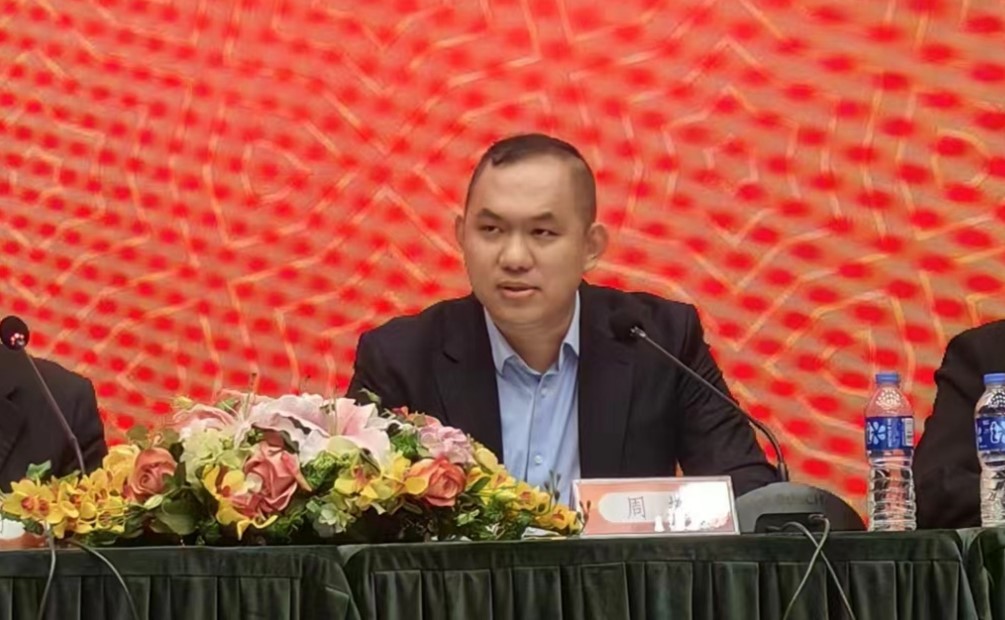On the afternoon of March 28, 2024, the “25 Years since the Return of Macao: Reform and Innovation” was jointly organized by the Macau Basic Law Promotion Association, the Legal Affairs Bureau, the Municipal Affairs Bureau and the Education and Youth Development Bureau, and co-organized by the Faculty of Law of the Macau University of Science and Technology (M.U.S.T.). The activity aimed to celebrate the 25th Anniversary of the Establishment of the Macau Special Administrative Region (RAEM) and the 31st anniversary of the promulgation of the “Macao Basic Law”. The event took place in the conference hall of the Macao Science Center. As one of the co-organizers, there were over 30 teachers and students of the Faculty of Law attended the event.

Figure I
Chancellor Liu Chak Wan (in the middle), Secretary-General Chen Jimin (sixth from the left), Dean Fang Quan (fifth from the left), and Assistant Professor Zhou Ting (first from the right) took a group photo with some students participating from the Faculty of Law.
Mr. Cheong Weng Chon, Deputy of the Chief Executive of the Macao Special Administrative Region and Secretary for Administration and Justice; Mr. Huang Liuquan, Deputy Director of the Liaison Office of the Central People’s Government in the Macao Special Administrative Region; Mr. Sun Xiangyang, Deputy Commissioner of the Office of the Commissioner of the Ministry of Foreign Affairs of the People’s Republic of China in the Macao Special Administrative Region; Mr. Deng Zhonghua, President of the Chinese Association of Hong Kong & Macao Studies; Dr. Liu Chak Wan, President of the Macau Basic Law Promotion Association; and Mr. Chui Saicheong, President of a Council of the Macau Basic Law Promotion Association attended the opening ceremony as officiating guests. Dozens of experts and scholars from the Chinese Mainland and Macao gathered to discuss the theoretical research and successful practice of “One Country, Two Systems” in the Macao Special Administrative Region.

Figure II
Dean Fang Quan delivered a speech.
Professor Fang Quan, Dean of the Faculty of Law, delivered a speech at the seminar titled “New Development of National Security Legislation in the Macao SAR in the New Era”. Professor Fang Quan believed that under the principle of “One Country, Two Systems”, the “initial value” of national security legislation in the Macao SAR consists of the principle provisions of the Constitution and Article 23 of the Basic Law. Since Macao’s return to the motherland, it has established the necessary legal basis for the Macao SAR to maintain national security by formulating and amending the “Macau National Security Legislation” and formulating laws related to national security. However, under the requirements of the overall national security concept, Macao’s national security legislation should make a new development, that is, to combine the two legislative dimensions of different legal levels and different security fields, and to grasp the two legislative paths of “self-legislation” and central legislation to advance in an orderly manner. At the same time, the new development of national security legislation in Macao should be combined with the “secondary localization” process of Macao SAR laws to continuously improve the legal system.

Figure III
Assistant Professor Zhou Ting presided over the second unit.
Assistant Professor Zhou Ting from the Faculty of Law attended the seminar and served as the moderator of the second session. During the interactive session, students actively posed questions to the speakers at the main venue, creating a lively atmosphere. Students who were present at the seminar mentioned that the seminar was highly meaningful. On the one hand, it enhanced their comprehension of the reasons and processes for Macao’s active promotion of the “One Country, Two Systems” principle; on the other hand, it improved their understanding of the “Macao Basic Law”. It was hoped that Macao would continue to uphold the practice of “One Country, Two Systems”, seize national development opportunities, pursue development through reform and innovation, and propel Macao further.



